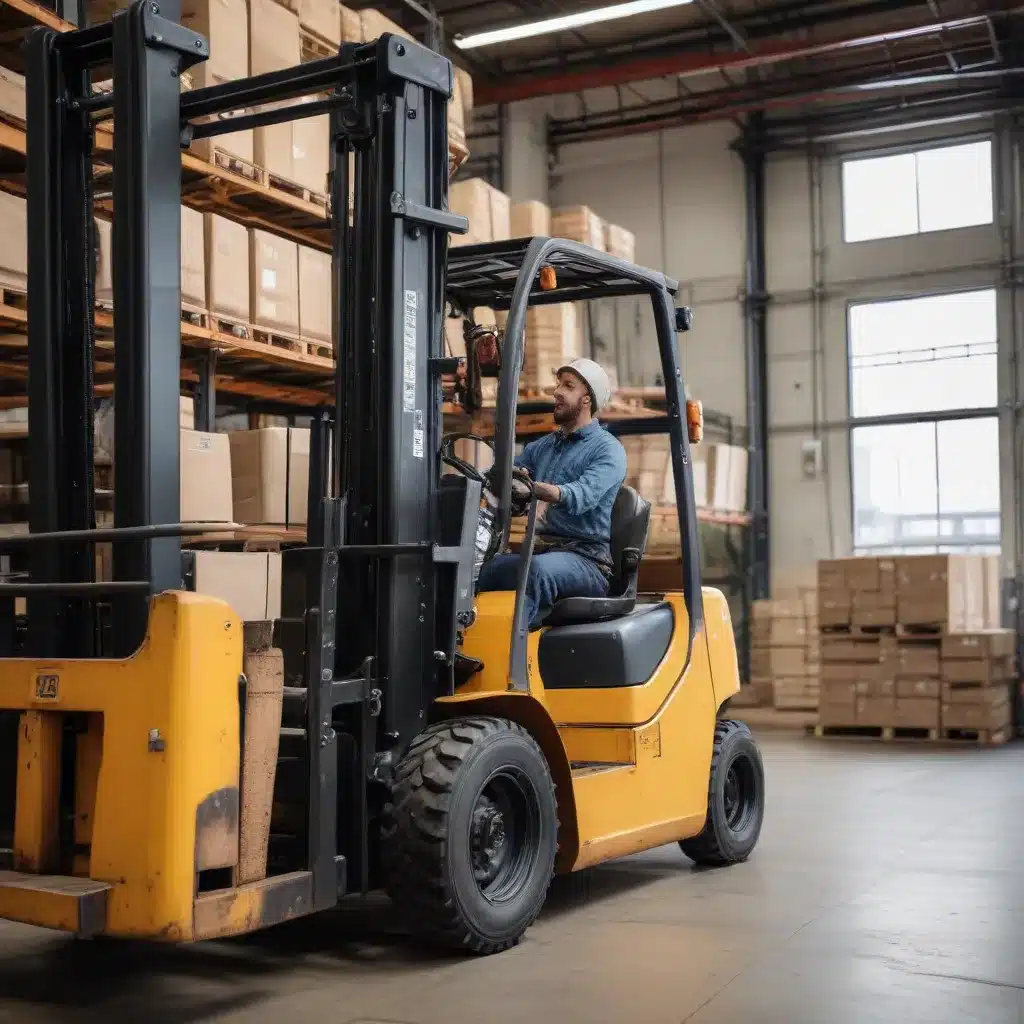
The Rise of Eco-Friendly Forklifts and the Importance of Sustainable Practices
As businesses strive to adapt to changing market demands, the forklift industry is undergoing a significant transformation driven by the increasing focus on environmental sustainability and corporate social responsibility (CSR). One of the key trends shaping the industry is the rise of eco-friendly forklifts, which not only reduce carbon footprints but also lower operating costs.
Manufacturers are developing more energy-efficient models, including electric and hybrid forklifts, in response to the growing awareness of environmental issues. This shift towards greener technology aligns with the sustainability goals that many organizations are now prioritizing as part of their overall business strategies.
By embracing eco-friendly forklifts, companies can demonstrate their commitment to sustainability and enhance their CSR initiatives, ultimately contributing to a more sustainable future.
Navigating the Forklift Leasing vs. Buying Dilemma
When it comes to acquiring forklifts, businesses often face the dilemma of whether to lease or buy. Each option has its own advantages and disadvantages, and the right choice depends on a variety of factors, including the company’s financial situation, growth plans, and sustainability goals.
Forklift Leasing:
Leasing forklifts can provide numerous benefits for businesses, particularly those focused on sustainability and CSR. Leasing allows for greater flexibility, as companies can regularly update their equipment to take advantage of the latest eco-friendly technologies without the upfront capital investment required for purchasing. Additionally, leasing often includes maintenance and repair services, further reducing the burden on the company’s resources.
One of the key advantages of forklift leasing is the ability to align the lease term with the company’s sustainability goals and objectives. This ensures that the equipment remains aligned with the organization’s environmental commitments, making it easier to transition to newer, more efficient models as they become available.
Forklift Buying:
Purchasing forklifts, on the other hand, can provide long-term cost savings and a sense of ownership over the equipment. For companies with a clear, long-term vision for their material handling needs and a strong commitment to sustainability, buying forklifts can be a strategic choice.
By owning the forklifts, companies can ensure that their fleet aligns with their CSR goals from the outset and can make investments in customizations or upgrades that enhance the equipment’s environmental performance.
Optimizing Your Forklift Fleet for Maximum Sustainability
Regardless of whether you choose to lease or buy your forklifts, there are several strategies you can implement to optimize your fleet for maximum sustainability:
Forklift Fleet Management Software
The adoption of forklift fleet management software is a crucial step in improving the efficiency and sustainability of your material handling operations. These digital solutions enable businesses to monitor usage, schedule maintenance, and track performance metrics, allowing for informed decision-making and the optimization of the fleet’s environmental impact.
By leveraging fleet management software, companies can identify opportunities to reduce energy consumption, minimize downtime, and ensure their forklifts are operating at peak efficiency, ultimately contributing to their overall sustainability goals.
Comprehensive Operator Training
As forklift technology becomes more sophisticated, proper training for operators is essential. Investing in comprehensive training programs ensures that employees are equipped with the necessary skills to handle advanced equipment safely and efficiently, reducing the risk of accidents and optimizing the forklifts’ performance.
Well-trained operators can contribute to the sustainability of the forklift fleet by adopting eco-driving techniques, identifying potential maintenance issues, and promoting a culture of environmental awareness within the workplace.
Customization and Flexibility
The need for customized forklift solutions is growing, as businesses seek equipment tailored to their specific operational requirements. By working with manufacturers or leasing providers, companies can choose forklifts that best fit their sustainability goals, whether that’s adjusting lift heights, load capacities, or attachment types to minimize environmental impact.
Customized forklifts can help companies optimize their material handling processes, reduce energy consumption, and ensure that their equipment aligns with their overall sustainability objectives.
Aligning Forklift Acquisition with Corporate Social Responsibility and Sustainability Goals
When it comes to forklift acquisition, the choice between leasing and buying should be carefully considered in the context of the company’s broader CSR and sustainability initiatives. By adopting a strategic approach that prioritizes environmental impact and social responsibility, businesses can leverage their forklift fleet to drive meaningful progress towards a more sustainable future.
Whether leasing or buying, companies should strive to align their forklift acquisition strategies with their corporate social responsibility and sustainability goals, ensuring that their material handling operations contribute to the overall well-being of the environment and the communities they serve.
By staying informed about the latest trends in the forklift industry and exploring innovative leasing or purchasing options, businesses can make strategic decisions that enhance efficiency, improve safety, and ultimately support their sustainability efforts. Forklift Reviews is committed to providing the insights and resources necessary to help organizations navigate this critical aspect of their operations.
Conclusion
As the forklift industry continues to evolve, businesses have a unique opportunity to embrace sustainable practices and demonstrate their commitment to corporate social responsibility. By aligning their forklift acquisition strategies with their sustainability goals, companies can not only optimize their material handling operations but also contribute to a greener, more resilient future.
Whether opting for forklift leasing or buying, organizations should carefully evaluate the options and leverage the available tools and resources to ensure that their material handling fleet is a reflection of their environmental stewardship and social consciousness. By taking a proactive and strategic approach, businesses can unlock the full potential of their forklift investments while driving positive change within their industry and communities.

